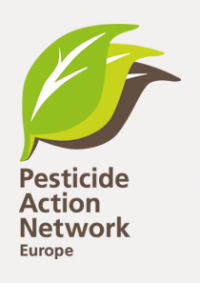Dear Commissioner Sinkevičius,
Pesticide Action Network (PAN) Europe is a Brussels based NGO working with its 45 national members to replace hazardous pesticides with sustainable, non-chemical alternatives. PAN Europe is in these first days of spring celebrating the Pesticide Action Week, aiming at raising awareness on the health and environment risks of chemical pesticides, highlighting and promoting alternative solutions, while building an international network for a pesticide-free world.
At this occasion, we would like to communicate our proposal on how the European Biodiversity Strategy 2030 (BDS) calls in relation to Greening urban and peri-urban areas (point 2.2.8) should be integrated into already existing policies of relevance to towns.
1. Upgrade EU Green Capitals and Green leaf criteria towards pesticide free
PAN Europe has for years been working with DG ENVI regarding its concept of EU Green Capitals. Since 2014, pesticide-related questions are being asked to applicants, and a number of EU Green Capitals like Nijmegen and Copenhagen have been pesticide free for decades, as well as a number of the laureates like Ghent.
Launched in 2015, PAN Europe's Pesticide Free Towns campaign has established an extended network of local authorities and citizens across Europe to share experience on alternative techniques, with materials being developed in seven official EU languages so far.
A number of Member States, France, Belgium, Luxembourg, Netherlands, have already introduced a ban on using pesticides in public areas. We therefore believe that there is enough expertise from the ground to take this debate to the next level.
As a way to apply the BDS’s demand for ‘healthy ecosystems, green infrastructure and nature-based solutions should be systematically integrated into urban planning’ PAN Europe calls on you to upgrade the winner criteria to make sure that future EU green capital winners, and Green leaf winners, are pesticide-free. We also call on you to work with the 2022 EU Green capital winner, Grenoble, to include special awareness activities about their paths towards becoming pesticide free town.
2. Proposal for collaboration regarding the Urban Greening Plans and the Green City Accord
PAN Europe has with great interest read that the BDS mentions that “to bring nature back to cities and reward community action, the Commission calls on European cities of at least 20,000 inhabitants to develop ambitious Urban Greening Plans by the end of 2021”, which among others should help to “eliminate the use of pesticides, limit excessive mowing of urban green spaces and other biodiversity harmful practices. Such plans could mobilise policy, regulatory and financial tools”.
PAN Europe, together with its member organisations, expanded its activities on towns in 2017 by setting up a network of pesticide free cities and towns across Europe, with the overall aim of bringing together a critical mass of towns committed to phasing out pesticide use and provide a European platform of experience, practice and knowledge sharing, and mutual support. The network also aims to raise political awareness at all levels.
One of the towns who signed the pledge recently was Tallinn, a laureate to the EU Green Capital 2022 award. As you can see here, Tallinn actually gives full attention to the problem of biodiversity caused by pesticides. Their declaration states: “a city can be truly sustainable only if we live in harmony with the surrounding nature. Tallinn is concerned about the steady decline of insects and especially pollinators. Tallinn has joined the movement of European Pesticide Free Towns, we have mapped our use of pesticides and we are taking steps to reduce it systematically. Tallinn Urban Environment and Public Works Department has reduced the use of pesticides necessary for keeping road sides clean of weeds by 58% (in comparison with data from 2017)”.
PAN Europe therefore would like to propose a partnership with DG Environment regarding Urban Greening Plan and the Green City award
We would be very pleased to share with you over time a number of biodiversity related projects that we have identified in which local administrations engage citizens on biodiversity related matters. Just to mention a few from Belgium, telling their citizens how to love their weeds and why it is good for local biodiversity, for instance the commune of St. Gilles, the Environment department of Brussels region, as well as NGOs telling about nature on sidewalks in Wallonia.These stories are really important to tell, especially in these post COVID times, and as you can read here, these are all around us.
We would be extremely pleased if you would accept to meet us to discuss these proposals in details.
Sincerely yours,
Francois Veillerette
PAN Europe President
Contact :
Henriette Christensen, Senior Policy Adviser- Agriculture & Pesticide Free Towns
henriette [at] pan-europe.info II +32 2 318 62 55
